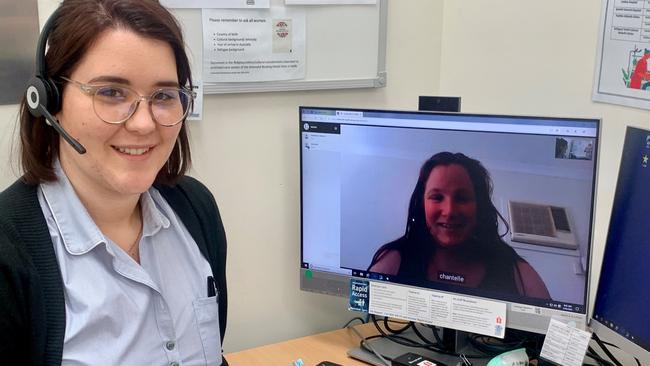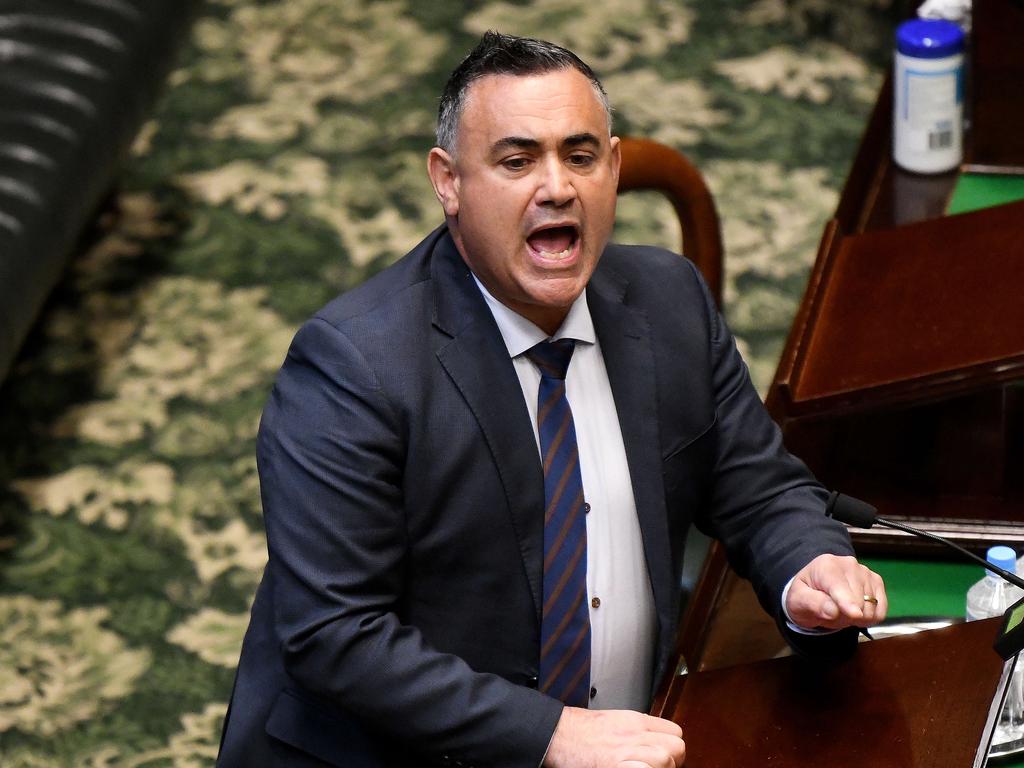
The myriad telehealth benefits to patients during the pandemic are known by Hunt to be the platform for a revolution in healthcare that should ensure its continuity after March.
Convenience, safety and efficiency are just springboards to the wider digital health revolution. The immediate problem is cost, because during the pandemic 10.5 million patients have undertaken 30.5 million consultations — all bulk-billed on Medicare.
The principle of universal healthcare can’t be touched, so it’s a matter of working through ways to minimise the downsides including potential fraud.
Most GPs would prefer patients come to them because they have more control, visits last longer and, putting health issues to one side, the visits are also more remunerative.
But there is no doubting the efficiency of telehealth and, as Australian Unity’s Rohan Mead has commented, “the aim is to get to the stage where the patient tells the doctor he or she is ready to be seen”.
ANDHealth’s Bronwyn Le Grice has argued the COVID regulatory changes and the rapid acceptability of telehealth should open the door in Australia to the wider digital health industry.
The sector includes connected and wearable devices (so doctors can monitor patients and only intervene if the treatment plans are off track), home delivery and monitoring of medicines and the treatment of software as a medical device.
In the US industry, capital has grown from $400m to $22bn in a decade.
Then there is widening the net for private health to cover more patient needs, and it can quickly be seen that the reform platform ahead for Hunt is enormous, stretching way beyond a six-month extension for telehealth.
Wilson mulls move
The way Geoff Wilson would look at Friday’s 53 per cent vote in favour of Contango’s Income Generator Fund’s move to allow its internal manager David Sokulski to set up shop externally as WCM is that 47 per cent voted against.
This is fertile ground for an activist who can now mull a formal move for control of the fund amid other options as he continues his self-installed role as the grand consolidator of the listed investment company space.
Long-running talks with Brian Sherman’s Consolidated Leaders Fund (CLF) came to nothing so he launched a bid through WAM Capital, which like other Wilson funds is selling at a premium to net asset value.
That explains why CLF is trying to fight the bid as a battle between rival NTAs rather than stock prices.
WAM has a market value of $16bn, against $64m for CLF, and the hunt is for more funds under management and franking credits, while Wilson’s asset management team looks after the funds management side of the business.
As the major shareholders of the parent company, the more assets under management, the more fees, the more happy shareholders and the fatter Wilson’s wallet.
Law and merger order
The Law Council (also known as the trade practices mafia) is opposing ACCC attempts to increase its merger control powers, arguing the regulator is more successful than it thinks it is.
The council represents big business lawyers whose job is to get mergers through the door, and of the cases that ended up in court in the past decade the lawyers have won, with five of the six decided against the ACCC, and one — Aurizon and Pacific National — awaiting final decision.
The most recent loss for the ACCC was the TPG-Vodafone merger, and ACCC chief Rod Sims has complained that the courts set too high a bar to getting cases across the line, taking more notice of self-serving statements from the companies involved rather than thinking through the consequences. The end result is an industry structure that is highly concentrated.
Not surprisingly, the big business lawyers reject the basis of the argument, disputing that Australian business is too concentrated despite daily evidence to the contrary.
The more immediate challenge in the wake of COVID-19 is an expected boost in mergers caused by failing companies that is talked about but yet to happen.
Government handouts such as JobKeeper and more accommodative bankers have meant the expected boom in insolvencies is yet to appear in the statistics, and likewise the ACCC has not been confronted by a run of failing company merger applications.
The failing company test is where, say, No 1 and No 2 in an industry merge, which would normally be blocked, but if No 2 is in administration then maybe the deal can happen.
The test is whether the company would exit the industry if it wasn’t for the merger.
The bottom line is that the takeover lawyers, like the insolvency lawyers, are doing little.
The last listed merger on the ACCC website is a small door parts deal between Dormakaba and E-Plus, with the September 4 listing of Woolworths and PFD Food still in the monitoring stage.
This means the ACCC expects to deal with it, but the official submission is yet to be lodged by the parties.
Law Council figures show in the 10 years ended June last year there were 3165 mergers, of which only six, or 0.2 per cent, ended up in court. This represents just 1 per cent of the 696 cases reviewed either publicly or privately by the ACCC over the decade.
Of these, the ACCC opposed or expressed reservations about 131 transactions, or 9 per cent of total transactions, of which 76 were discontinued before a decision was made and 48 didn’t happen after the decision was made.
The argument is that the ACCC is actually more effective than it gives itself credit for.
This is not an argument against improving the law in the light of the case record. But it does put the ACCC in a better light. The concern is the ACCC is too stretched with a range of peripheral matters like the airline review released this week that concluded that competition was critical for airline consumers. That is akin to saying mothers’ milk is good for babies.
The reference was handed to the ACCC earlier this year as Virgin went into administration and the government shut the borders.
Virgin is now financially secure but the dangers of abuse of dominance and market manipulation are clear. The issue is why the government needed to hand an official reference to the ACCC and the arguments are it means it can use its monitoring powers to keep on top of the industry and put Qantas on notice.
When the state borders are opened, the next issue facing Qantas is how to manage its international revival, which could well involve more international alliances and will need ACCC approval.
The airline review has some more merit than the present three-month review of supermarket supply chains, which is nothing more than an attempt by Agriculture Minister David Littleproud to flex his muscle.
Such references threaten to undermine the political independence of the ACCC and, in doing so, diminish its standing.
The ACCC has limited resources and, rather than issuing reports stating the obvious or to satisfy political demands, it should be concentrating on its day job, which is protecting consumers against competition abuses.








Federal Health Minister Greg Hunt’s welcome extension of telehealth for six months is one step — the more important one is working out how the measure can be made a permanent fixture.